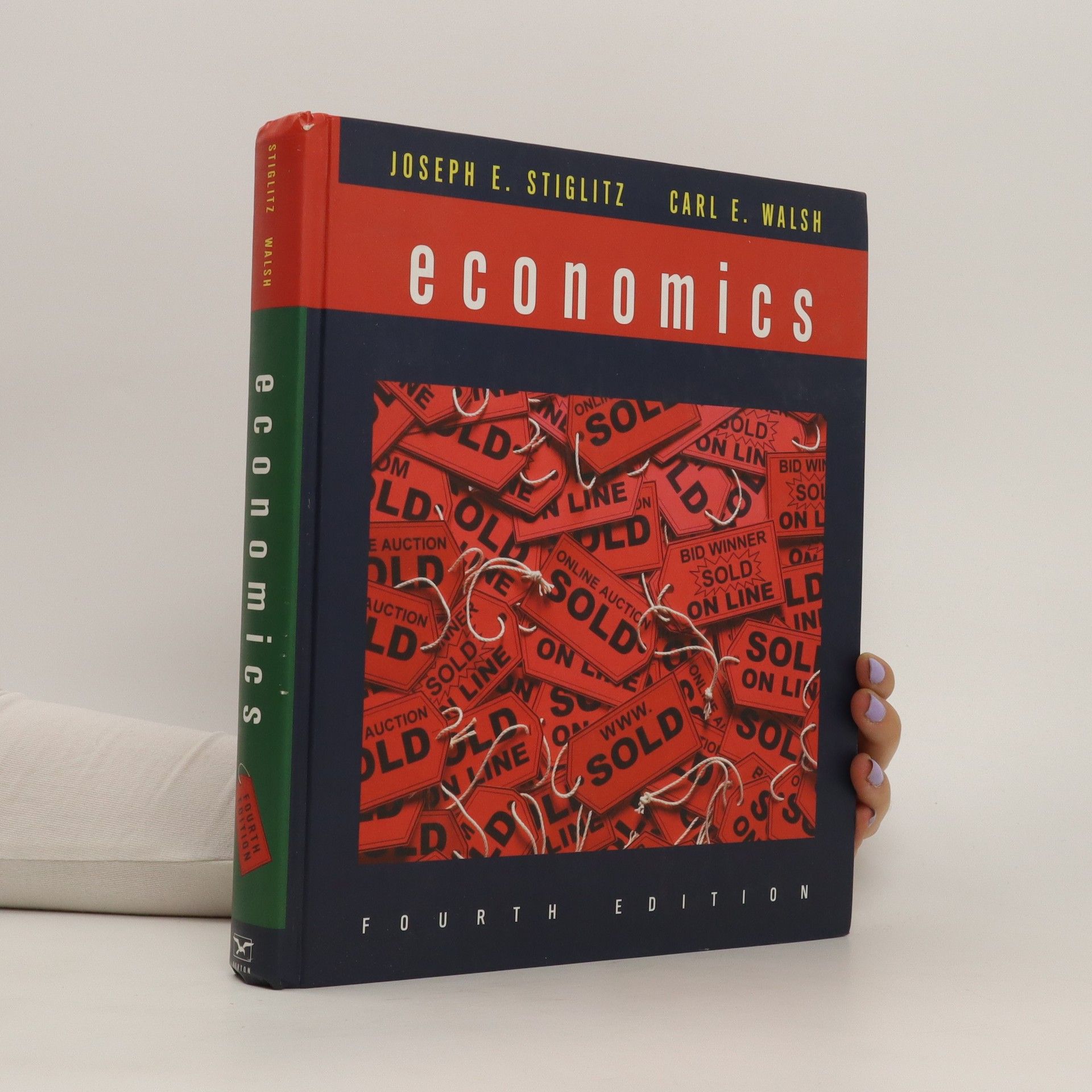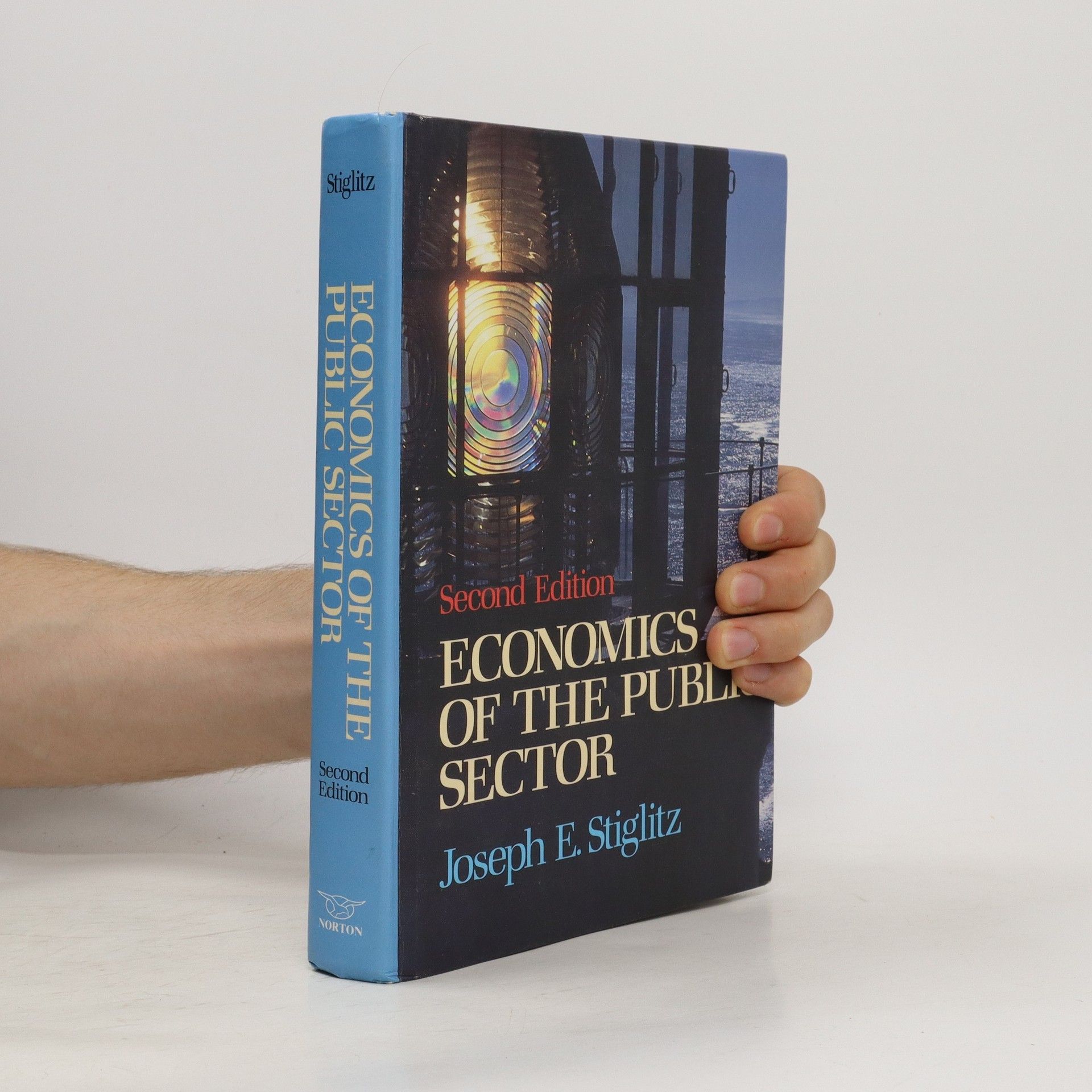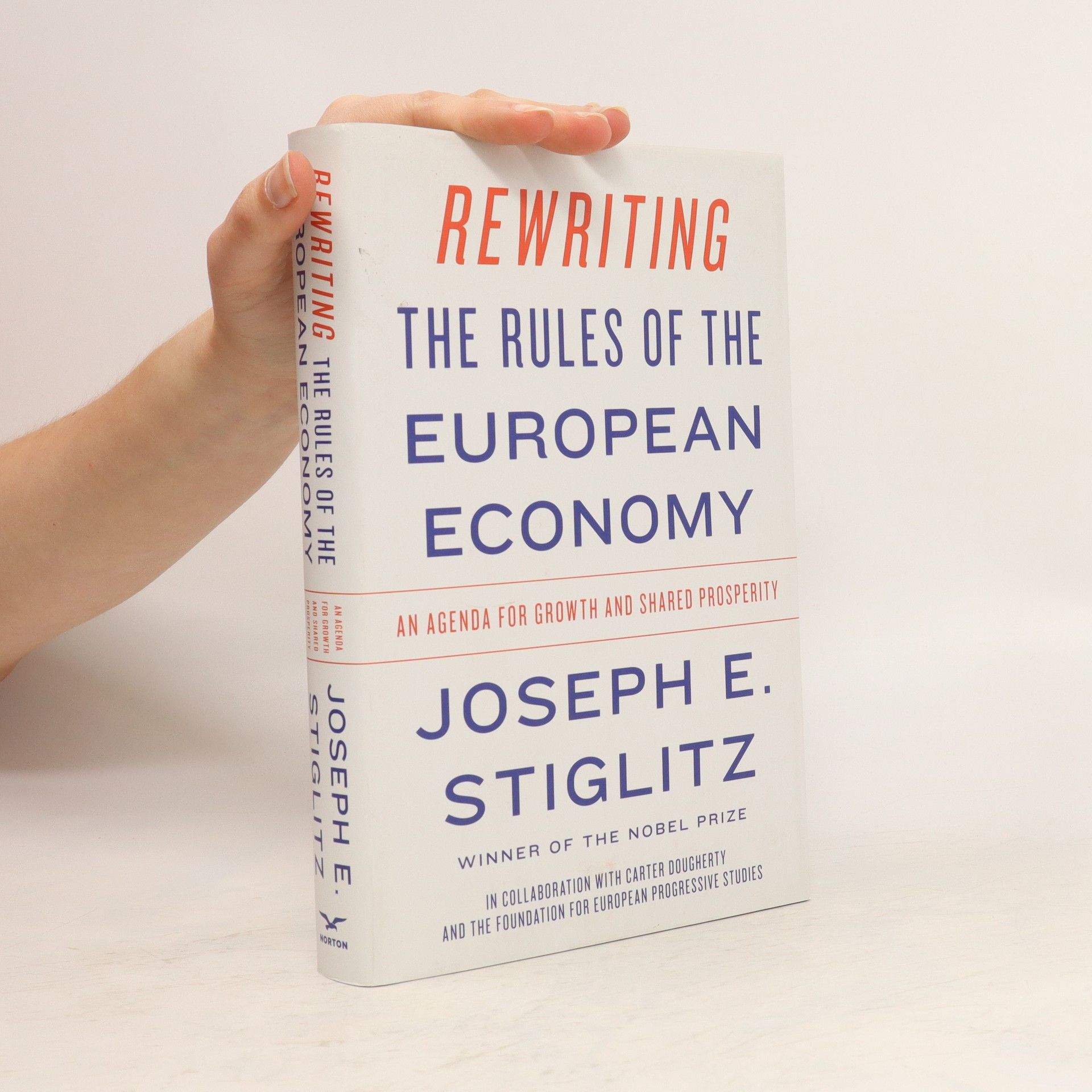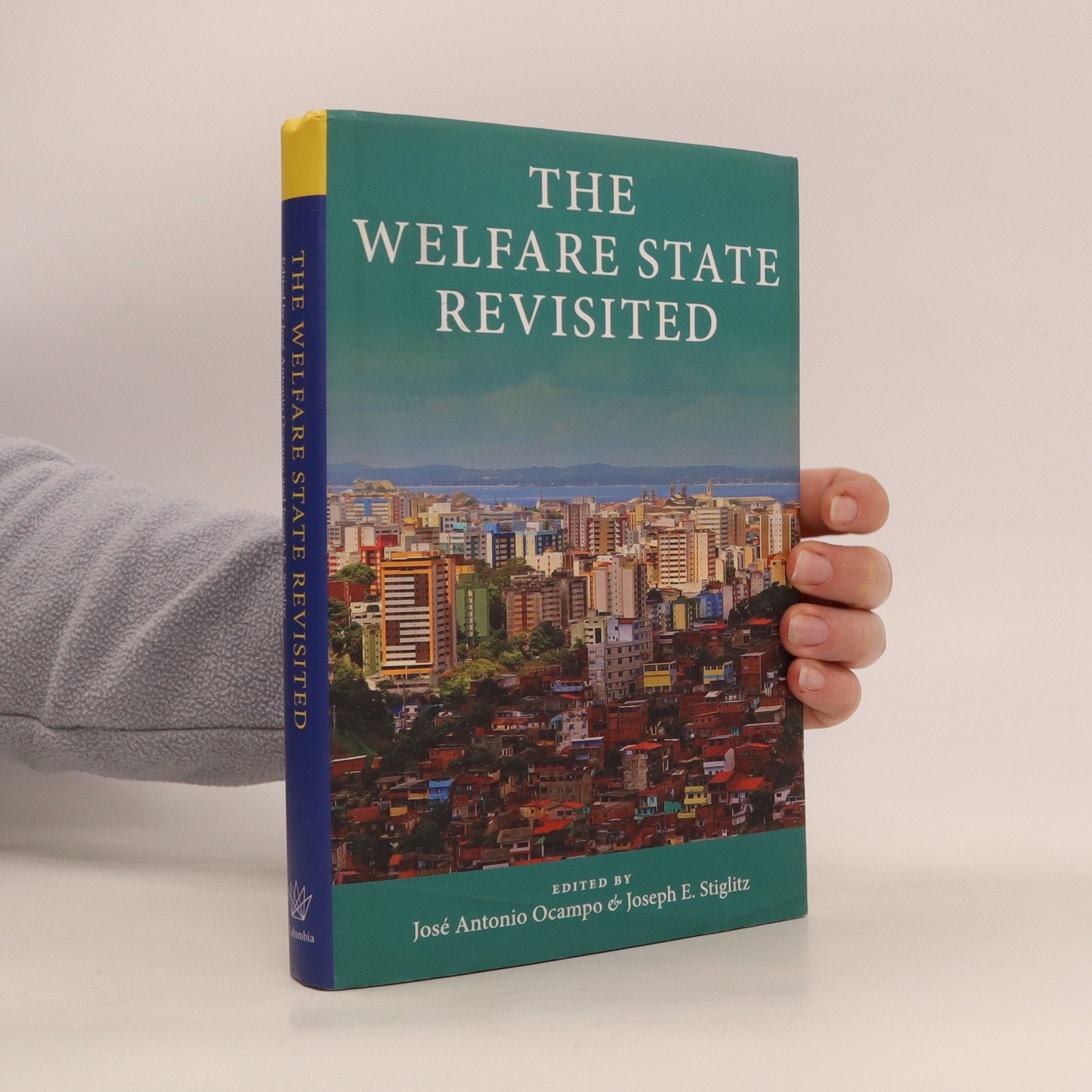Gegen die Freiheit des Raubtierkapitalismus: Warum unsere Gesellschaft eine neue Wirtschaftspolitik braucht, um zukunftsfähig und gerechter zu werden Unter Donald Trump und Elon Musk greift ein Kult der Freiheit um sich. Doch die Wahl- und Meinungsfreiheit, die J.D. Vance & Co. zu einem Fetisch erhoben haben, geht immer auf Kosten der Freiheit anderer. Joseph Stiglitz, Nobelpreisträger und einer der schärfsten Kritiker Donald Trumps, zeigt, wer die Opfer der neuen Meritokratie sind – und wie der Abbau von Bürokratie sowie unregulierte Märkte Wachstum bremsen und unsere Gesellschaften ärmer machen. Doch Stiglitz bleibt nicht bei der Analyse stehen, sondern weist uns den Weg, wie wir das Konzept der Freiheit zurückerobern können. Ein leidenschaftliches Plädoyer für eine gleichermaßen gerechtere wie freiere Welt.
Joseph E. Stiglitz Book order (chronological)
Joseph Stiglitz is a distinguished economist known for his critical perspective on the management of globalization and certain international institutions. His work frequently explores themes of inequality, market failures, and the societal impacts of economic policy. Stiglitz's influential voice in economic discourse is characterized by his emphasis on the need for regulation and social responsibility within the global economy. He is recognized as one of the most cited economists globally, with analyses that shape contemporary understanding of international development.







The book critiques the enduring narrative of neoliberalism, which promotes the idea that minimal regulation and unfettered capitalism lead to increased prosperity and individual freedom. It explores how this perspective, despite its evident shortcomings, continues to influence public opinion and government policies globally, arguing that the moral implications of such a belief system warrant closer examination.
The Road to Freedom
- 384 pages
- 14 hours of reading
From a leading economist comes a compelling vision of personal and economic freedom. The nation was founded on the belief in individual liberty, yet since the mid-20th century, this idea has been distorted. Political forces on the Right have masked exploitation with rhetoric about freedom, resulting in pharmaceutical companies overcharging, unregulated Big Tech, and corporations polluting without consequence. This raises critical questions about whose freedom is prioritized and should be prioritized. In this work, Nobel laureate Joseph E. Stiglitz examines America's economic system and the political ideologies that shaped it, revealing their failures. Unfettered markets have led to crises like the financial collapse, the opioid epidemic, and growing inequality, benefiting a small elite while wages stagnate for the majority. Such exploitation has fueled populist movements that equate freedom with the abandonment of civic responsibility, posing a threat to genuine economic and political liberty. Drawing on his extensive experience as an advisor and chief economist, Stiglitz critiques the neoliberal agenda and challenges the ideas of influential economists. He advocates for a reevaluation of freedom that accounts for conflicts between individuals and emphasizes collective action through regulation and investment. The urgency of this task is paramount, making this work essential for anyone dedicated to fostering an economic and
La economía del sector público, 4a edición nos trae la esperada revisión y actualización de este clásico. Joseph E. Stiglitz, Premio Nobel de Economía, y Jay K. Rosengard, recurren a su enorme experiencia para abordar las cuestiones clave de la economía del sector público. Esta nueva edición incluye importantes cambios y se completa haciendo referencia a los nuevos retos que debemos afrontar tras la crisis global de los últimos años. La economía del sector público es un manual escrito pensando en el estudiante, con un lenguaje accesible, y que permite alcanzar un dominio conceptual de la materia más allá de los conocimientos técnicos. Los autores nos familiarizan con una perspectiva global, gracias a su bagaje profesional y su conocimiento de primera mano de cómo proceden los diferentes gobiernos.
Co je skutečným pramenem prudkého růstu životní úrovně v posledních dvou stoletích? Co odlišuje úspěšné firmy od neúspěšných? Proč se některým rozvojovým zemím daří dohánět náskok vyspělého světa, zatímco jiné setrvávají v chudobě navzdory tomu, jak důsledně se řídí radami uznávaných ekonomických expertů a světových institucí? Klíč k odpovědím na tyto otázky nespočívá v akumulaci kapitálu, ani v množství zdrojů či výstupů, ale ve schopnosti učit se a získané znalosti efektivně sdílet. Autoři této knihy vysvětlují, v čem se produkce znalostí liší od produkce jiných statků a proč tržní ekonomika sama o sobě nedokáže zajistit jejich efektivní tvorbu ani šíření.
Pandemie und Markt
Ein Gespräch über eine gerechte Weltwirtschaft
Der amerikanische Wirtschaftsnobelpreisträger spricht über neue Leitplanken für eine gerechtere Weltwirtschaft. Passgenaue öffentliche Ausgaben, vor allem Investitionen in die grüne Wirtschaft, sind das Gebot der Stunde. Können wir die nationalen Wirtschaften nach Corona wiederaufrichten? Ja, aber nur mit mehr Kooperation, nicht weniger! Die Probleme nach Corona sind die Probleme vor Corona, nur schlimmer. Das hat die Pandemie schonungslos gezeigt. Ob Ungleichheit und Klimawandel, Wirtschaft und Arbeit, Geschlechterverhältnisse, Gesellschaft, Demokratie und Staat – Corona beschleunigt alte Missstände und Widersprüche. Was sind die Folgen? Wie kommen wir da wieder raus? Und was können wir besser machen? Ein Band aus unserer Corona-Interviewreihe, in der acht prominente Köpfe aus Wissenschaft, Politik und Kultur Antworten geben.
Rewriting the Rules of the European Economy
- 400 pages
- 14 hours of reading
A companion to his acclaimed work in Rewriting the Rules of the American Economy, Joseph E. Stiglitz, along with Carter Dougherty and the Foundation for European Progressive Studies, lays out the economic framework for a Europe with faster growth that is more equitably shared. Europe is in crisis. Sluggish economic growth in many countries, widespread income stagnation, and recession have led to severe political and social consequences. Social protections for citizens have been cut back. Governments offer timid responses to deep-seated problems. These economic and political failures have contributed to the rise of extremist parties on the right. Marginalized populations are being made scapegoats for Europe’s woes. But the problems of today’s Europe stem from decisions based on a blind worship of markets in too many areas of policy. If Europe is to return to an innovative and dynamic economy—and if there is to be shared prosperity, social solidarity, and justice—then EU countries need to break with their current, destructive trajectory. This volume offers concrete strategies for renewal that would also reinvigorate the project of European integration, with fresh ideas in the areas of both macroeconomics and microeconomics, including central banking, public investment, corporate governance and competition policy, social policy, and international trade.
Der Preis des Profits
Wir müssen den Kapitalismus vor sich selbst retten!
Das Buch der Stunde: Wie kämpfen wir gegen die Auswüchse des Kapitalismus? Seit dem Crash von 2008 ist es nicht gelungen, den Kapitalismus wirksam zu reformieren. Ganz im Gegenteil, er droht vollends aus dem Ruder zu laufen: Die Finanzindustrie schreibt sich ihre eigenen Regeln; die großen Tech-Firmen beuten unsere persönlichen Daten aus; die Machtballung in der Industrie nimmt zu und der Staat hat seine Kontrollfunktion praktisch aufgegeben. Nobelpreisträger Joseph Stiglitz zeigt, wie es dazu kommen konnte und warum es, was nicht zuletzt das Beispiel Donald Trump zeigt, dringend nötig ist, den Kapitalismus vor sich selbst zu schützen.
People, Power, and Profits
- 368 pages
- 13 hours of reading
In this book Stiglitz identifies the true sources of wealth and of increases in standards of living, based on learning, advances in science and technology, and the rule of law. He shows that the assault on the judiciary, universities, and the media undermines the very institutions that have long been the foundation of America's economic might and its democracy. Helpless though we may feel today, we are far from powerless. In fact, the economic solutions are often quite clear. We need to exploit the benefits of markets while taming their excesses, making sure that markets work for us-the U.S. citizens-and not the other way around. If enough citizens rally behind the agenda for change outlined in this book, it may not be too late to create a progressive capitalism that will recreate a shared prosperity. Stiglitz shows how a middle-class life can once again be attainable by all. An authoritative account of the predictable dangers of free market fundamentalism and the foundations of progressive capitalism, People, Power, and Profits shows us an America in crisis, but also lights a path through this challenging time
The Welfare State Revisited
- 408 pages
- 15 hours of reading
The welfare state has been under attack for decades, but now more than ever we need strong social programs to combat inequality, support social justice, and even improve economic performance. This book brings together distinguished contributors to examine global variations of social programs and make the case for a redesigned welfare state.





